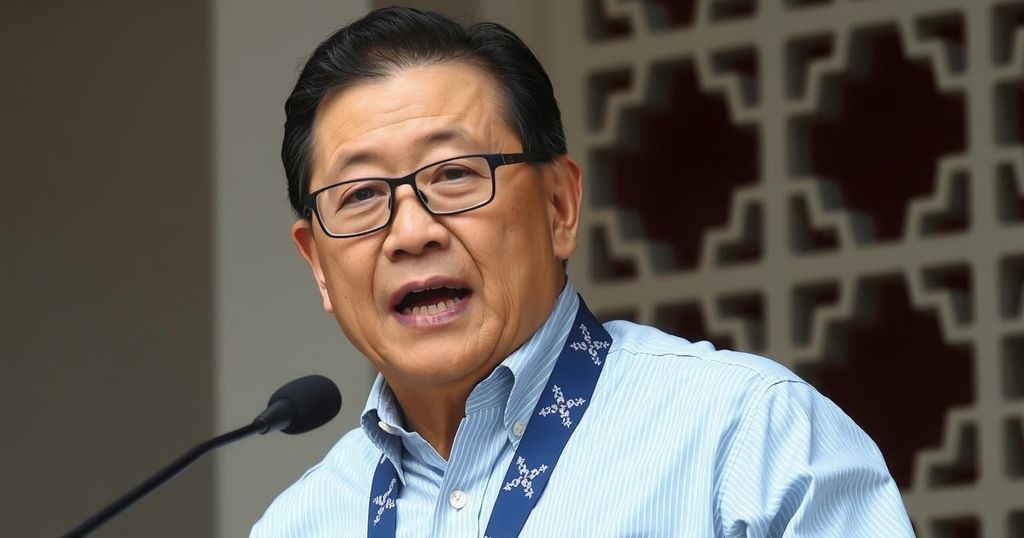Lim Kimya, a prominent Cambodian opposition figure, was assassinated in Bangkok, reflecting the dangers faced by government critics. A former CNRP member of parliament, he was known for his outspoken critiques of corruption and human rights violations. Despite a notable political career and advocacy for democratic values, his life was tragically cut short, raising serious concerns regarding political safety for dissenters.
The recent assassination of Cambodian opposition politician Lim Kimya in Bangkok highlights the continued peril faced by critics of the government. A former member of the Cambodia National Rescue Party (CNRP), Lim Kimya was shot twice shortly after his arrival in Thailand, a mere kilometer from the Royal Palace. This incident occurred amidst a backdrop of growing trepidation for opposition voices in both Cambodia and abroad. Lim Kimya, who was unyielding in his criticisms against Prime Minister Hun Sen and the ruling Cambodian People’s Party, notably raised concerns regarding corruption and human rights abuses in the country.
Lim Kimya’s untimely death is indicative of the broader climate of fear that engulfs political dissenters in Cambodia. Born in the early 1950s in Battambang, he spent years in France before returning to Cambodia, where he gained recognition for his academic credentials and political activism following the CNRP’s commendable showing in the 2013 elections. His political engagements challenged the long-standing power of the CPP and brought forth issues surrounding government accountability, but they also rendered him a target for retribution, as demonstrated by his assassination.
The assassination of Lim Kimya not only marks a tragic turning point for Cambodian politics but also illustrates the dangerous ramifications associated with opposition activism. His persistent advocacy for democratic governance and his critiques of governmental corruption resonate strongly within a context of escalating threats to political opposition figures. As Cambodia’s political landscape evolves, Lim Kimya’s legacy as a fearless critic will be remembered fondly by those who seek reform and accountability.
Original Source: www.rfa.org






